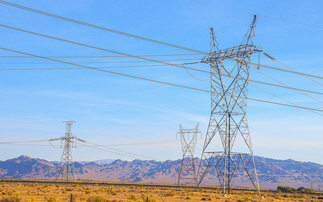Allan Zhang says businesses need to pay attention to China's shifting demand if they want to stay ahead of the game
China's rapid development over the past 30 years or so offers one of the most vivid manifestations of a megatrend in action: the shift in global economic power.
The country's consistently high growth rates, achieved through rapid industrialisation, have propelled it at breakneck speed up global economic league tables. However, these achievements have come with a heavy environmental cost.
In addition to the alarmingly high levels of smog that have blighted most of China's cities, over 70 per cent of their rivers are believed to be polluted, water shortages and land contamination have become more severe than ever. In fact, the environmental situation has deteriorated to such a level that it raises the question to the purpose of economic growth.
Following the call for "building an ecological civilisation" in 2012, the Chinese new leadership under President Xi Jinping has just adopted a new guideline for stepping up efforts for the campaign. This included "greenisation" as one of the guiding principles for industrialisation, urbanisation, "informatisation" and agricultural modernisation and coincided with the announcement of the new and toughest Environmental Law, Waste Water Treatment Law and Forest Law. Also, prior to the Paris conference on climate change, China announced its plan of peaking its carbon dioxide emissions around 2030 and increasing the share of non-fossil fuels in primary energy consumption to around 20 per cent.
These changes will increasingly guide and shape other policies and investment priorities. Its influence and the seriousness with which it's being taken at the highest level is already becoming clear. For example, in the near future, local government officials -a key layer for implementing China's national policy objectives - will have their personal performance assessed against a new set of environmental goals and standards. These will include an audit of how well they manage a ‘balance sheet' of natural resources. As China is primarily a government-driven economy, measures like these will translate into significant changes on the ground and local officials will have to take environmental issues and green initiatives more seriously than in the recent past.
The dramatic change in direction from the pursuit of economic growth at all cost is a major policy departure. More balanced growth will erode the reliance on energy-intensive, high-emissions, heavy industries. Instead, we'll see the pursuit of greener, technology-driven and energy efficient economic activity and investments. That, in turn, will drive demand for new technologies to improve energy conservation, achieve lower emissions, drive greater recycling and tackle pollution.
Of course, all this won't happen overnight. China will continue its reliance on coal and remains the world's biggest source of greenhouse gas emissions. However, changes can happen very quickly: China is already home to the largest solar and wind markets in the world for example.
So with China clearly pursuing an accelerated green agenda, what are the implications for the rest of the world? Extractive and energy-intensive industries are likely to be hit hard as China's demand shrinks. Businesses in these sectors will need to review their strategies to drive future growth. At the same time, the developments taking place in China will create more opportunities for foreign businesses that can respond to the changing demand for greener, technology-driven capabilities. But to take advantage, those companies need to align their business strategies with China's state policies. One thing's for sure: the pace of change is only likely to accelerate.
Allan Zhang is director of sustainability and climate change at PwC
This article is part of the BusinessGreen Road to Paris Hub, sponsored by PwC.







